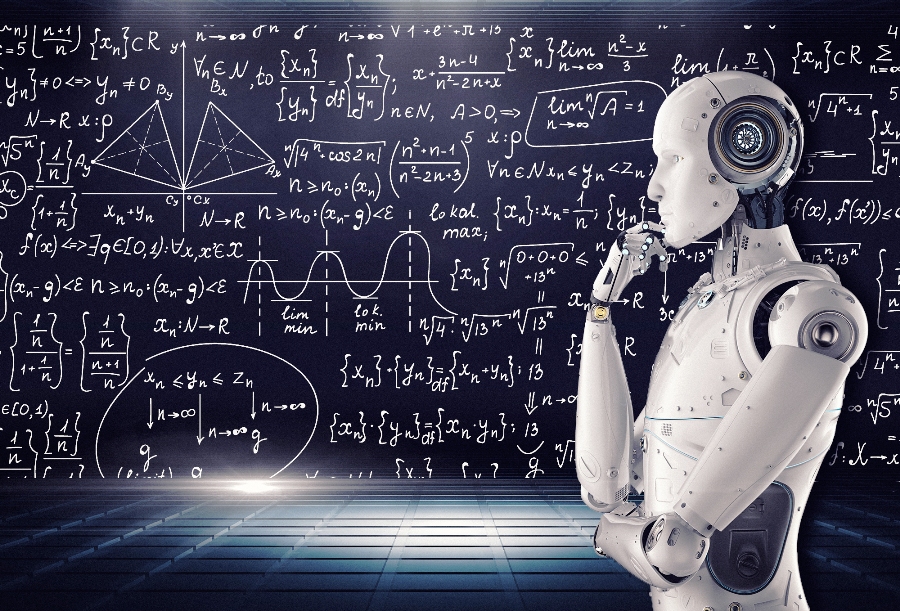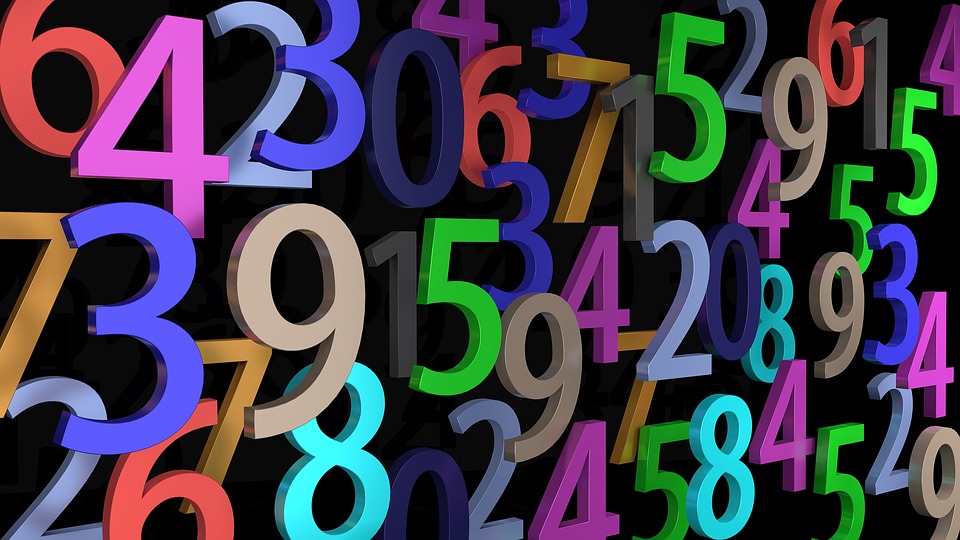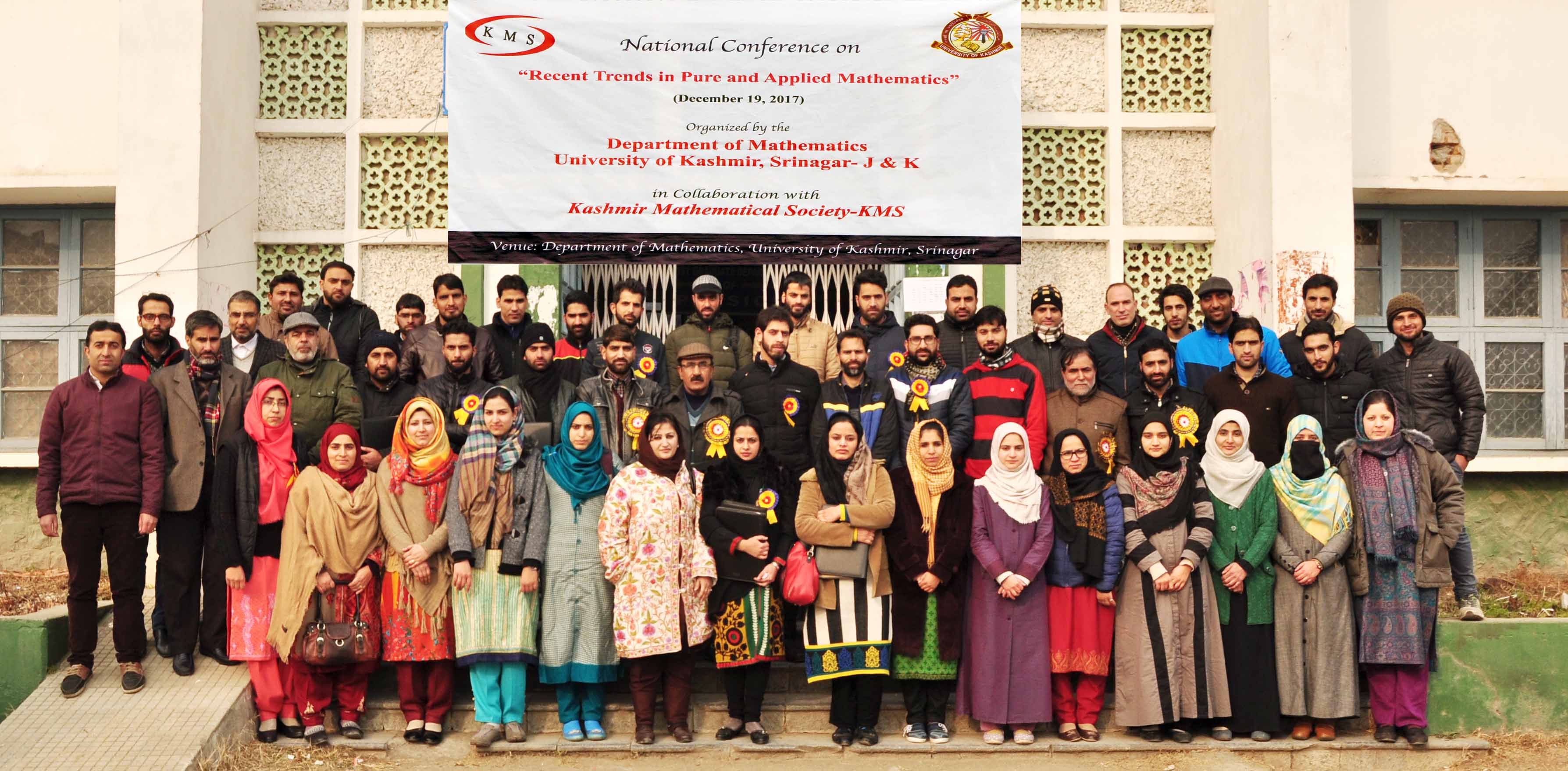by Dr Reyaz Ahmad Ganaie
In today’s digital age, proficiency in data sciences, statistical skills, and mathematical applications is pivotal for the job market, which faces a shortage of these quantitative skills. Consequently, mathematical anxiety has become a global concern.

March 14 marks the International Day of Mathematics, colloquially known as Pi Day, an annual event celebrated globally by mathematics enthusiasts and educators. This day serves to acknowledge the significance of mathematics in our lives, with its date corresponding to the first three digits of the mathematical constant Pi (3.14).
Pi, defining the ratio of a circle’s circumference to its diameter, was initially calculated by the mathematician Archimedes of Syracuse and later symbolized by Leonhard Euler in 1737. Physicist Larry Shaw formally recognized the day in 1988, organizing a large-scale celebration at the San Francisco Exploratorium, where festivities included cutting a Pi-shaped pie and reciting the value of Pi to as many decimal places as possible.
In 2019, during its 40th General Conference, the United Nations Educational, Scientific and Cultural Organisation (UNESCO) designated Pi Day as International Mathematics Day. This annual event is celebrated globally by schools, universities, and mathematical organizations, each year with a unique theme aimed at promoting mathematics education and awareness.
The International Day of Mathematics is spearheaded by the International Mathematical Union, featuring a different theme annually. The theme for 2024 is “Playing with Math.” This initiative serves as a platform to raise awareness about the indispensable role of mathematics in scientific and technological advancements. It underscores mathematics’ significance in enhancing quality of life, promoting gender equality, and advancing the Sustainable Development Goals outlined in the United Nations’ 2030 Agenda.
Pi is an irrational and transcendental number, its decimal representation neither terminates nor repeats. Consequently, exact values for the area or circumference of a circle remain elusive. Ancient Egyptians purportedly utilized Pi’s principles in constructing the pyramids of Giza, with the ratio between pyramid height and base perimeter akin to that of a circle’s radius and circumference. As a fundamental constant, pi holds pivotal importance in mathematical calculations, underpinning various scientific endeavours. Furthermore, Pi Day aligns with the birth anniversary of Albert Einstein and the passing of renowned theoretical physicist Stephen Hawking in 2018.

For many students, mathematics poses a significant challenge. Negative perceptions surrounding the subject often impede learning, with prevailing attitudes characterizing mathematics as inherently difficult and stressful. Children’s aversion to mathematics typically develops over time through repeated negative experiences. Consequently, the subject garners a poor reputation among students. Nevertheless, disciplines such as physics, engineering, and biology heavily rely on mathematical principles for advancement and understanding.
Jammu and Kashmir emerges as the most challenged state in rural school education, according to reports from the National Achievement Survey (NAS) conducted in 2017 and 2021. The 2023 Annual Status of Education Report (ASER) surveyed 28 districts across 26 states, encompassing 34,745 children aged 14-18. Each state, except for Uttar Pradesh and Madhya Pradesh, where two rural districts were surveyed, featured one rural district. The latest ASER findings reveal that over half of rural Indian adolescents in the 14-18 age bracket struggle with fundamental skills such as basic division, time comprehension, and arithmetic, typically taught in Class 3-4. This underscores a substantial skills gap among adolescents, many of whom are nearing entry into the workforce.
In Anantnag district, Jammu and Kashmir, only 35per cent of enrolled students aged 14 to 18 could complete the arithmetic test in Mathematics. Moreover, the report indicates that overall, 53 per cent of students could calculate time, 54.8 per cent could measure length (difficult), and 57.6 per cent could apply the unitary method for everyday calculations. In practical tasks, among those capable of at least subtraction in the ASER arithmetic test, 71.3 per cent could manage a budget, 45.6 per cent could apply a discount, and 13.6 per cent could calculate repayment, with male students outperforming females in most application-based tasks. Addressing these learning gaps among students at all levels is imperative for stakeholders.
The National Education Policy (NEP) 2020 prioritises achieving foundational literacy and numeracy for all children by 2025. It emphasizes that further educational pursuits are meaningful only upon mastering these basic skills at the appropriate age. Accordingly, the policy underscores a renewed focus on foundational literacy and numeracy, aiming to equip learners with essential skills crucial for navigating today’s complex world.
Francis Bacon aptly remarked, “Neglect of mathematics works injury to all knowledge since he who is ignorant of it cannot know other sciences or things of the world.” Mathematics serves as the cornerstone of all creations, indispensable for the functioning of our world. It unveils the absolute knowledge and wisdom inherent in nature, with the laws of nature being manifestations of mathematical concepts. From rainbows and river meanders to spider webs and snowflakes, mathematical patterns permeate the visible world, fostering order and preventing chaos.
Furthermore, mathematics nurtures reasoning, creativity, abstract thinking, critical analysis, problem-solving abilities, and effective communication skills. Its beauty lies in offering multiple approaches to problem-solving, enabling validation of solutions and aiding students in timed assessments. Moreover, proficiency in mathematics opens doors to various career opportunities in fields such as medicine, engineering, and chartered accountancy.
 Continuous professional development is imperative to keep educators updated on the latest teaching methodologies and technological advancements. Encouraging teachers to integrate critical thinking, problem-solving, and creativity into the curriculum fosters comprehensive learning experiences. Mathematics instruction should embrace activity-based learning, emphasizing sensory engagement and hands-on experimentation. This approach recognizes children as active learners, fostering joy and long-lasting comprehension through exploration within an optimal learning environment.
Continuous professional development is imperative to keep educators updated on the latest teaching methodologies and technological advancements. Encouraging teachers to integrate critical thinking, problem-solving, and creativity into the curriculum fosters comprehensive learning experiences. Mathematics instruction should embrace activity-based learning, emphasizing sensory engagement and hands-on experimentation. This approach recognizes children as active learners, fostering joy and long-lasting comprehension through exploration within an optimal learning environment.
For students encountering challenges in foundational literacy and numeracy, remedial classes should be initiated. Peer learning and collaborative activities should be promoted to address individual learning gaps effectively. Leveraging technology for personalized learning ensures adaptive content tailored to diverse learning needs. Finally, cultivating a positive attitude and strong mathematical skills requires concerted efforts from both teachers and parents.
The ASER 2023 report highlights critical issues within India’s education system, particularly concerning the deficiency in basic mathematical skills. Addressing these challenges necessitates strategic interventions and a comprehensive overhaul of the educational framework to ensure effective learning experiences. It is incumbent upon teachers, parents, researchers, and psychologists to devise strategies to foster a positive attitude towards mathematics. Additionally, enhancing parent-child mathematical interaction is essential, with potential long-term benefits for children’s academic achievement and reduction of mathematical anxiety.

In today’s digital age, proficiency in data sciences, statistical skills, and mathematical applications is pivotal for the job market, which faces a shortage of these quantitative skills. Consequently, mathematical anxiety has become a global concern. Collaboration among educationists, policymakers, teachers, mathematicians, educational psychologists, and parents is vital to alleviate this anxiety. Given the prominence of mathematics in the information technology sector, recruiting proficient mathematics teachers who inspire passion and love for the subject is crucial.
Unfortunately, misconceptions prevail, perpetuating an atmosphere of panic surrounding mathematics. It is imperative to cultivate interest and inclination towards mathematics among the new generation. Celebrating International Mathematics Day 2024 entails fostering an environment conducive to mathematical study, enabling students to excel across all facets of life.
(The author is a researcher, independent writer, and poet. Ideas are personal)















